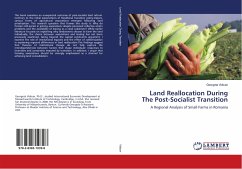
Industrial Control Over the Socialist Town
Benevolence or Exploitation?
Versandkostenfrei!
Versandfertig in 1-2 Wochen
61,99 €
inkl. MwSt.

PAYBACK Punkte
31 °P sammeln!
The author addresses the neglected issue of the relations between the functioning of powerful state industrial firms and the town under socialism. As they strived for labor force, the manufacturing and mining employers in Central and Eastern Europe became prominent gatekeepers controlling access to scarce goods and services, which reflected a specific labor market segmentation. The distribution of social benefits and burdens they generated enhanced life chances of certain groups by and large at the cost of the underprivileged-women and the elderly in particular. This socialist industry contrib...
The author addresses the neglected issue of the relations between the functioning of powerful state industrial firms and the town under socialism. As they strived for labor force, the manufacturing and mining employers in Central and Eastern Europe became prominent gatekeepers controlling access to scarce goods and services, which reflected a specific labor market segmentation. The distribution of social benefits and burdens they generated enhanced life chances of certain groups by and large at the cost of the underprivileged-women and the elderly in particular. This socialist industry contributed to social injustice and deprivation as well as the reproduction of entrapping spatial settings such as factory colonies and areas reserved for potential expansion. The study reveals a great diversity of mechanisms of industrial control over and exploitation of socialist towns in Poland. Spatial organization of local activities and facilities exhibited the power of industrial gatekeepers, and in several cases became a mediating element facilitating achievement of the firm's objectives. The residents' sense of place was permeated by the company through its multiple involvement outside the factory gates, which could justify its dominant position and conceal sources of social inequalities and conflicts. The legacy of socialist factory paternalism bears heavily upon post-socialist society, which is evident in anti-egalitarian attitudes and social closure attempts demonstrated by the beneficiaries of the gatekeepers' allocation.














